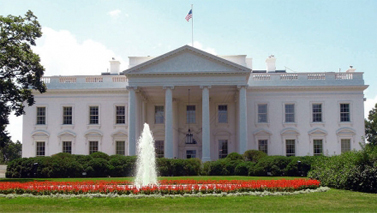
By Abe Field /// Staff Writer
Over the past few weeks, Republican and Democrat voters across the country have dragged themselves down to the polls to vote in the primary election. These elections are counted state by state, and determine the amount of delegates each candidate will win.
Tuesday March 1st, otherwise known as Super Tuesday, was the biggest day of voting for the primary race in 2016. Twelve states and one territory were up for grabs on this day alone.
The primary election will be decided either when all but one candidate drops out of the race for each party, or when one candidate wins enough delegates to win the nomination. The Republican nominee needs 1,237 delegates and the Democratic nominee needs 2,383 delegates.
On Super Tuesday, the Political Science and Media and Rhetoric Studies departments at Lewis & Clark organized a viewing party for students and faculty who were interested in watching the results of the day come out. It was also a great way for students to discuss their predictions for the upcoming primaries. Almost 40 students were in attendance.
On the television, the jubilant crowd pulsated as loud cheers erupted from the screen. The newscasters feebly attempted to make sense of the nonsense that was the result of an atmosphere almost like that of a sporting event.
Nathaniel Hamlett ’19 attended the on-campus event.
“I thought it was a great idea,” Hamlett said. “It was a space for dumb political jokes but also real knowledge gathering from either professors or political science majors (which I am not).”
For Adam Betters ‘17, the event was refreshing.
“I liked having different professors pop in to watch and chat, and having people who supported different candidates was also nice,” Betters said. “I saw more political diversity at this event than I’m used to seeing at Lewis & Clark, and that’s always a good thing.”
Since Super Tuesday, 11 states have had their primaries. For the Democrats, Hillary Clinton secured a strong lead over Bernie Sanders, as she won eight states to Sanders’ five on the 1st. For the Republicans, Donald Trump widened his lead over a disorderly field of opponents.
“[Donald Trump] does very well in northeastern states still to vote, though there are a lot of states in the western part of the US that don’t seem to be as receptive to him,” Joe Gantt, professor of Rhetoric and Media Studies and the head debate coach at LC, said. “His biggest danger is if supporters of non-Trump candidates consolidate their support behind one candidate. Since Super Tuesday, Marco Rubio has had largely disappointing results while Ted Cruz has had stronger than expected results. This may be an indication of some consolidation. Regardless, it would be hard to see the core Trump supporters going anywhere else.”
Of all the states and territories that have been counted already, Donald Trump leads the Republicans with 652 delegates. Hillary Clinton leads the Democrats with 1100 pledged delegates as of press time.
“Overall I feel like the [Super Tuesday] primaries didn’t cause anything drastic to change in the race, although Cruz has been gaining on Trump since Super Tuesday and Bernie showed that he can give a pretty tough fight to Clinton,” Betters said.
Like Betters said, the race is not yet over. Candidates like Bernie Sanders, Ted Cruz and Marco Rubio still have a chance to overtake the leaders in their respective parties.
Subscribe to the Mossy Log Newsletter
Stay up to date with the goings-on at Lewis & Clark! Get the top stories or your favorite section delivered to your inbox whenever we release a new issue.

Leave a Reply